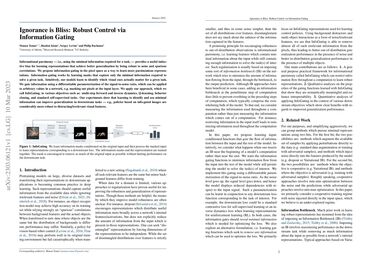Ignorance is Bliss: Robust Control via Information Gating
Informational parsimony provides a useful inductive bias for learning representations that achieve better generalization by being robust to noise and spurious correlations. We propose \textit{information gating} as a way to learn parsimonious representations that identify the minimal information required for a task. When gating information, we can learn to reveal as little information as possible so that a task remains solvable, or hide as little information as possible so that a task becomes unsolvable. We gate information using a differentiable parameterization of the signal-to-noise ratio, which can be applied to arbitrary values in a network, e.g., erasing pixels at the input layer or activations in some intermediate layer. When gating at the input layer, our models learn which visual cues matter for a given task. When gating intermediate layers, our models learn which activations are needed for subsequent stages of computation. We call our approach \textit{InfoGating}. We apply InfoGating to various objectives such as multi-step forward and inverse dynamics models, Q-learning, and behavior cloning, highlighting how InfoGating can naturally help in discarding information not relevant for control. Results show that learning to identify and use minimal information can improve generalization in downstream tasks. Policies based on InfoGating are considerably more robust to irrelevant visual features, leading to improved pretraining and finetuning of RL models.
PDF Abstract NeurIPS 2023 PDF NeurIPS 2023 Abstract

